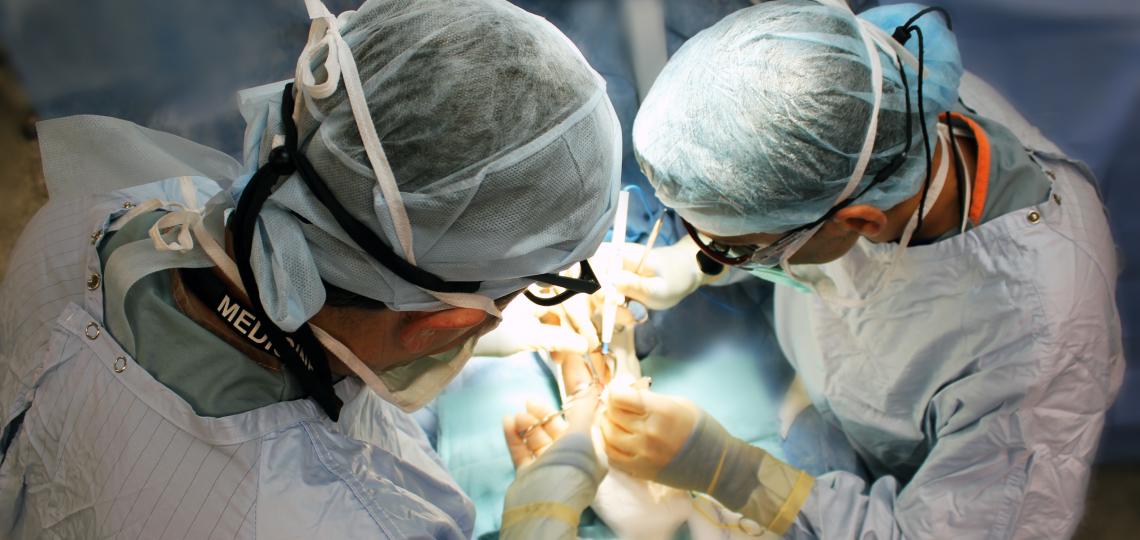Clinical rotations during this five-year clinical program prepare our trainees to embark on either an academic or private-practice career path.
The residents in the vascular surgery integrated (0-5) program are exposed to 60 months total of clinical rotations. This training includes 40 months of Vascular Surgery and 18 months of Core Surgery rotations. Upon completion, trainees are eligible for Vascular Surgery Certification by the Vascular Surgery Board of the American Board of Surgery.
Core surgical rotations focus on gaining patient evaluation, management and operative experience in those aspects of surgery that pertain to vascular surgery. Extensive acute care, Intensive Care Unit and transplant surgery experiences are provided. There is also longitudinal exposure to pediatric vascular surgery and trauma at Texas Children’s Hospital, one of the largest pediatric hospitals in North America. There are rotations dedicated to the noninvasive vascular laboratory, head and body axial imaging (MRI and CT), and risk factor modification (outpatient Cardiology). The vascular surgery rotations are spread among Baylor St. Luke’s Medical Center, the Michael E. DeBakey VA Medical Center, and Ben Taub Hospital.
The Michael E. DeBakey VA Medical Center has the largest clinical vascular surgery program in the VA healthcare system; over 900 operative vascular interventions and 1,400 interventional procedures are performed annually by vascular surgery physicians. Baylor St. Luke’s Medical Center offers a high volume of clinical experience in both surgical reconstructions and endovascular interventions, in excess of 1,500 cases per year. Trainees rotating at St. Luke's are also exposed to consults and operative cases at Texas Children’s Hospital, one of the largest pediatric hospitals in North America.
Vascular Surgery residents also learn about the diagnosis, evaluation and operative management of complex thoracoabdominal aortic aneurysms in a high volume clinical rotation under the leadership of Dr. Marc Moon, chief of the Division of Cardiothoracic Surgery.
Clinical research is encouraged during any of these rotations. Our vascular surgery faculty and residents participate in weekly conferences devoted to non-invasive vascular lab interpretation, didactic vascular lectures, vascular board review, morbidity and mortality conferences, and journal club. The residents also have the opportunity to participate in research under the direction of all faculty and Dr. Bijan Najafi, director of iCAMP, a research arm of the Division of Vascular Surgery and Endovascular Therapy. In addition, our 0-5 residents have a full 12 months dedicated to research between clinical years two and three, which positions them well for future success in academic surgery. The focus of the research experience is on study design, biostatistics, and outcomes research. To date, one of our vascular surgery integrated resident’s work during the research year led to the creation of a device patent, and all trainees have been critical contributors and first authors on institutional and multicenter collaborative research projects.








 Credit
Credit
